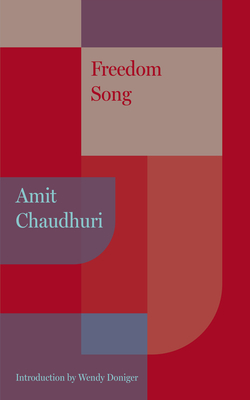
description
s Book Prize for Fiction, a graceful depiction of middle-class Calcutta, seen through the lives of two interlinked families living in the city during the 1990s. Freedom Song is a novel about family life and city life at an uneasy moment in time. Set in Calcutta in 1993, the book begins by introducing us to Khuku, whose husband Shib is a retired executive and whose son has gone to live in America. Khuku's old friend Mini, a teacher suffering from a bad case of arthritis, is paying a visit, which gives the two women a chance to gossip and reminisce and see the town. Khuku's brother, Bhola, lives nearby with his wife and two grown children. Everyone is concerned about his son, Bhaskar, who has recently joined the Communist Party. He sells the party newspaper on the streets. He engages in street theater, and while no longer in his first youth, he remains unmarried. Freedom Song circles around this small upper-middle-class world, with its customs, memories, pleasures, and worries, but also ventures out into the wider world, in which the destruction of the venerable Babri Masjid by Hindu fundamentalists has started a cycle of sectarian violence. A novel of ordinary life, of work and love, shadowed by larger uncertainty, Freedom Song is a transfixing performance, deeply humane and winningly humorous, by one of the subtlest and sharpest writers of our time. A world of insight and feeling emerges from Amit Chaudhuri's wonderfully expansive sentences, and style is revealed as nothing less than a form of knowledge.
member goods
No member items were found under this heading.
Return Policy
All sales are final
Shipping
No special shipping considerations available.
Shipping fees determined at checkout.







